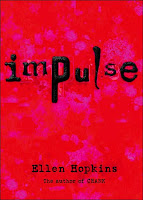So, if asked, "Why do people tell stories?" what would you respond? Is storytelling simply narrative art, designed as an aesthetic object? No, though good literature has intentional aesthetic value (positive or negative), not all good stories are good literature.
I would argue that anthropology holds the key to our storytelling impulse: the first people who played drums, danced, performed rites, memorized lineages, and told stories did so as an act of community formation. We may be so far from our tribal roots that our isolated lives resist participatory and communal acts, but that does not empty these arts of their power.
The act of hearing a story, and by extension the act of reading a story, ignites the communal impulse, the tribal instinct; when we read we become part of the author’s community, having entered into the authorial world, or the mind of the narrator, and we participate in the narrated events. One could argue that, for some people, involvement in the life of a story constitutes a more intentional and genuine involvement than that in which they participate in their unintentional, nearly accidental lives.
This tribal impulse drives us to discuss the story with our friends, start book groups, urge others to read our favorites. Indeed, even the academic impulse to research the lives of classic authors, read what they read, dissect their language, trace the themes of their works, compare their works to others, study the contexts in which their works take place, the people by whom they were first received, and the way in which they have been understood throughout their existence is a mad bid to become part of their tribe.
These things are acts of community formation with the author and with those who share our literary community, and in a world of isolated, deformed, and shallow relationships, our literary tribes are, for many of us, the truest experience of family we have ever had.
Look at the stories that people have used to narrate their lives throughout history, be they myths, family histories, national histories, or traditions, these communal activities have enabled the formation, development, and survival of cultures. Indeed, when we read Virgil, Beowulf, The Bible, The Epic of Gilgamesh, The Enuma Elish, Shakespeare, Dante, A Thousand and One Nights, or the Kuzari (
et alia) we are effectively inducting ourselves into the literary communities of the dead. Anchoring ourselves in these ancient communities, as well as the literary communities of our parents and grand parents
et cetera, combats the impulse toward negative forms of discrimination: racist, nationalistic, political, ethnocentric, or intellectual by including generations and cultures with greater experience, wisdom, and longevity than our own.
In reading classics, the immediacy of the then re-enters our experience through works that encapsulate and define cultures of the past. In the same way, teen literature, for instance, seeks to capture and define the voice of modern youth, and thus facilitate the formation of a generational community. Scott Westerfeld (Leviathan) and John Green (Paper Towns) are the prophets and shamans of our youth.
--Ty




